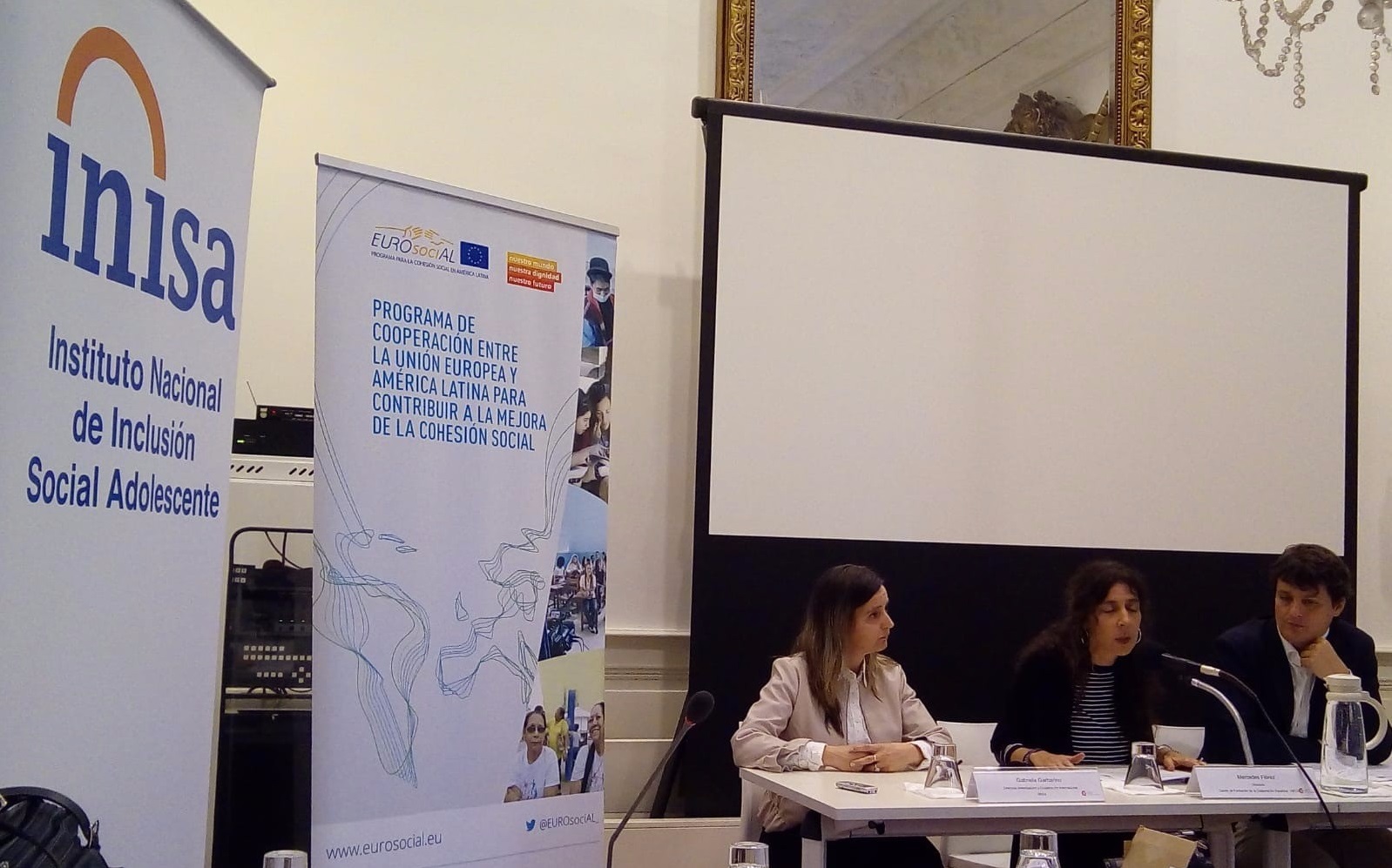EUROsociAL+ support to Uruguay’s National Institute for the Social Inclusion of Adolescents for implementing the new model that promote the use of alternative measures with young people who have committed offences

Montevideo hosted a training course in approaches to applying non-custodial measures to young offenders with the participation of international experts, including experts from the Italian Ministry of Justice and the Community of Madrid Agency for the Re-Education and Reinsertion of Young Offenders.
The course formed part of the assistance provided by the EUROsociAL programme to Uruguay’s National Institute for the Social Inclusion of Adolescents (INISA) for implementing the new approach/model that has recently been designed and approved and now needs to be implemented throughout the country. The goal of the model is to promote the use of alternative measures with young people who have committed offences, as expected by article 40 of the United Nations Convention on the Rights of the Child, according to which “detention must be a measure to which there can only be recourse as a last resort and the detention of a child shall only be considered when there are no viable alternatives”.
Cooperation from the EUROsociAL programme – provided by its Social Policy and Democratic Governance areas – firstly facilitates the management of the new model at the national level through an implementation plan and secondly gives support to the creation of a communication strategy that helps to alter the purely punitive view of juvenile crime held by the public.
The purpose of the course – designed for those involved in the Uruguayan juvenile criminal system: officials and operators of INISA and representatives of the Judiciary, the Public Prosecution Service and the services involved in the system – was to present to them the models already existing in Italy and Spain. A knowledge of the experiences presented led to reflection on and analysis of Uruguay’s current system. Its strengths and major critical issues were identified, such as the main challenges faced and possible solutions, as a means to drawing up an Implementation Plan. Within this framework, the methodology of the course included, in addition to presentations, workshops with the institutional teams on the mechanisms for managing the Uruguayan model.
The course was the second activity in the EUROsociAL+ support plan for INISA. In March the first mission took place: technical assistance from the Italian Ministry of Justice in drawing up a diagnostic analysis and identifying the first inputs to the design of the Plan. Now, an INISA work team will take the input from the technical assistance mission and the workshops held during the training course to continue constructing the Implementation Plan and defining an awareness-raising strategy for the new model.
EUROsociAL+. Área de políticas sociales y gobernanza / Social and Governance Policies Unit, FIIAPP and IILA



